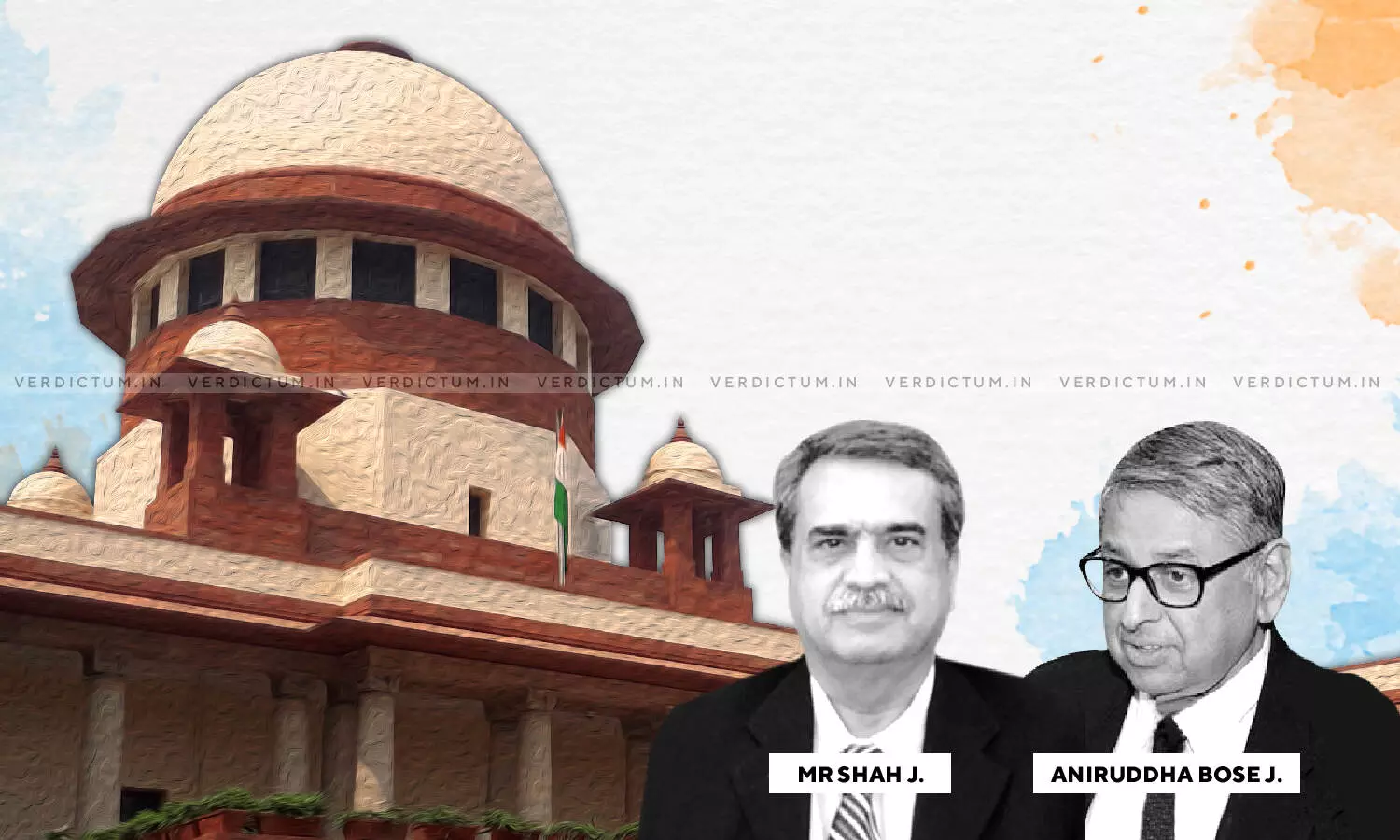
Child's Custody: Independent Income, Lesser Age And Bigger Family Does Not Fully Indicate Better Care – Supreme Court
 |
|A Supreme Court Bench of Justice MR Shah and Justice Aniruddha Bose quashed and set aside a judgment passed by the Gujarat High Court by which the custody of a 5-year-old orphaned boy had been granted to his maternal aunt, over his paternal grandparents.
The Apex Court held that "There cannot be any presumption that the maternal aunt being unmarried having an independent income; younger than the paternal grandparents and having a bigger family would take better care than the paternal grandparents."
In this case, the Appellant is the paternal grandfather of the child. Respondent No. 4 is the maternal aunt to whom the High Court granted custody of the child.
Mr. DN Ray appeared for the Appellant and Mr. Rauf Rahim appeared for Respondent No. 4.
The parents of the child died during the second wave of Covid-19. While they were infected with the Covid-19 virus, the child was residing with his maternal aunt. The paternal grandfather approached the High Court for the writ of habeas corpus, alleging that the maternal aunt was not allowing them to enter the house of his son and daughter-in-law and to take the belongings of the child. It was also alleged that the paternal grandfather was not permitted to even meet the child.
The paternal grandfather sought custody of the child, but the High Court gave custody of the child to the maternal aunt.
Aggrieved, the paternal grandfather of the child approached the Supreme Court.
The Court opined that grandparents are more attached emotionally with their grandchildren.
Further, the Court also noted that the maternal aunt lived in a tribal area, whereas the grandparents lived in a Metro City. To that end, the Court opined that "The minor will get better education in Ahmedabad, which is a Metro City compared to the education in Dahod. Being a retired person, the paternal grandparents would devote more time and take care of minor better than respondent No. 4 who is serving in the government department. Income and/or the age and/or the bigger family cannot be the sole criteria to tilt the balance and not to give the custody of the grandson to the paternal grandparents."
The Supreme Court observed that "We are of the opinion that if the balance is to be struck between the paternal grandparents and the maternal aunt, for the reasons stated above, the balance would certainly tilt in favour of the paternal grandparents. However, we may not be misunderstood that the maternal aunt may not take proper care of the minor son of her deceased sister."
The Supreme Court noted that the order passed in the present case is subject to the final outcome of the proceedings under Section 7 of the Guardians and Wards Act, pending before the competent court.
Setting aside the order of the High Court, the Supreme Court directed that while the custody of the child shall be with the paternal grandparents, the maternal aunt will be allowed visitation rights and video calling on a regular basis. To that end, the Supreme Court requested the parties to act jointly and cordially and have cordial relations to secure the larger interest of the child.
Disposing the Appeal, the Court said "We request to all the concerned to forget bitterness and forget the past and look in the future taking into consideration the future of the minor Pranav Acharya, who unfortunately, has lost his parents at the age of five years only. With this hope and trust, we close the present proceedings."
Click here to read/download the Order